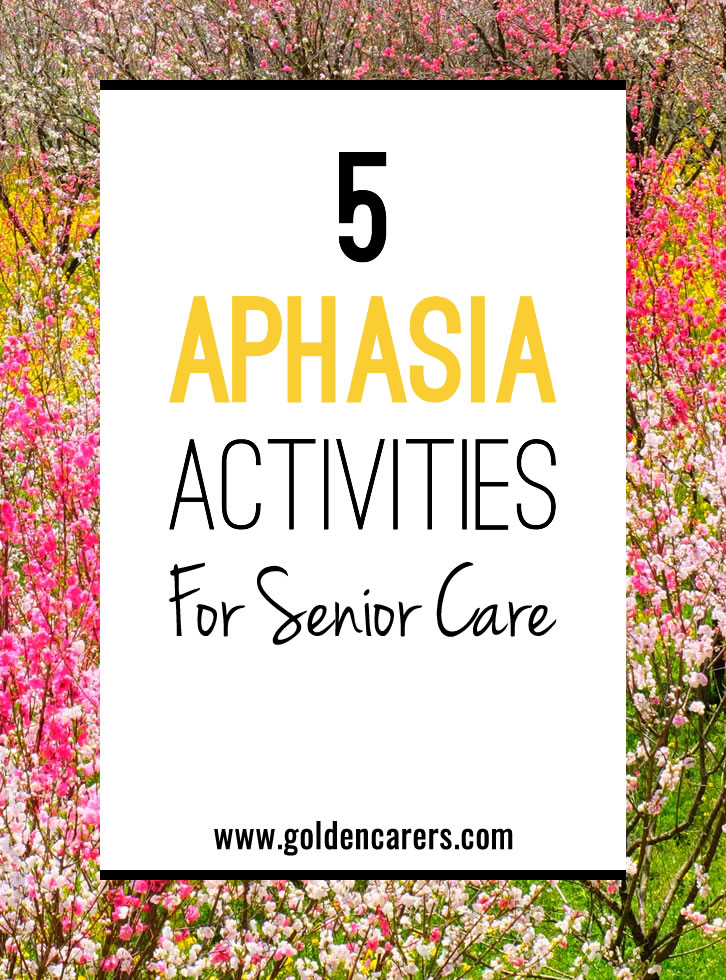
Aphasia is a communication disorder that results from damage or injury to the brain. A person with aphasia may have trouble understanding, speaking, reading, or writing.
In this article we cover:
- Types of Aphasia
- 10 Communication Strategies for Activity Staff
- Aphasia Activity Ideas for Activity Coordinators
- Printable Activities
Related Activities
Comments Post a Comment
 5th Jan 2020
Slp
5th Jan 2020
Slp
 15th Mar 2018
activities worker
15th Mar 2018
activities worker
Kind regards Christine

 4th Mar 2018
Diversional Therapist
4th Mar 2018
Diversional Therapist

 4th Mar 2018
Recreation and Rehab Manager
4th Mar 2018
Recreation and Rehab Manager
Thank you for the research, the understanding to explain to other staff, and the examples to assist people in maintaining their abilities.
Darla
 8th Mar 2018
Diversional Therapist
8th Mar 2018
Diversional Therapist
 27th Feb 2018
Diversional Therapist
27th Feb 2018
Diversional Therapist
 3rd Mar 2018
3rd Mar 2018
 27th Feb 2018
Student
27th Feb 2018
Student
 8th Apr 2018
Social Support Officer
8th Apr 2018
Social Support Officer


 How to Help New Residents Adjust to Lifestyle Changes
How to Help New Residents Adjust to Lifestyle Changes
 12 Examples of Support Groups for Your Community
12 Examples of Support Groups for Your Community
 The Importance of Daily Living Activities for the Elderly
The Importance of Daily Living Activities for the Elderly
 The Role of Enthusiasm in Senior Care
The Role of Enthusiasm in Senior Care

 United Kingdom
United Kingdom